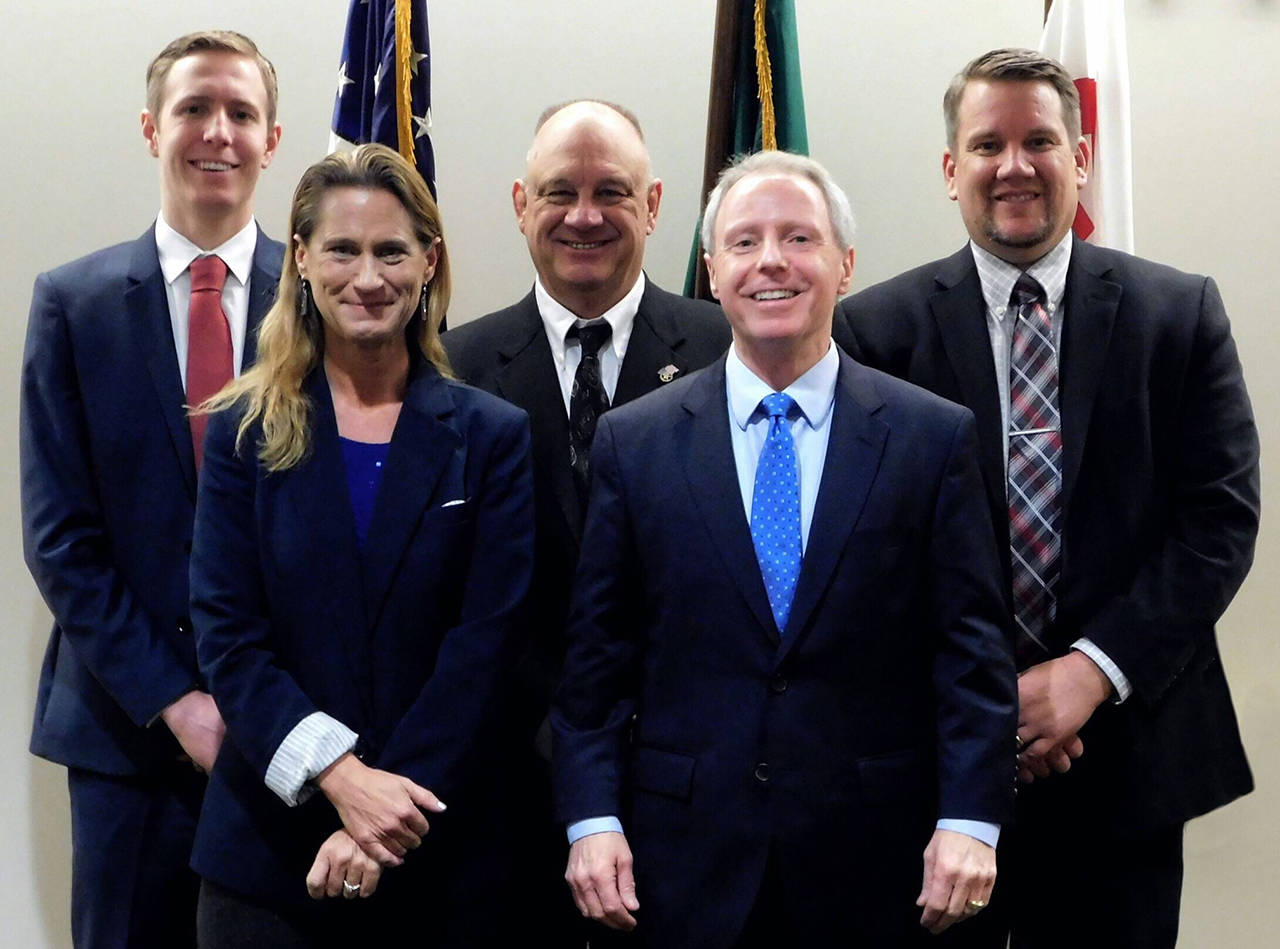By The Herald Editorial Board
In the midst of a now month-long federal government shutdown — and no significant movement by Congress or the White House to reach a deal — anything more chummy than a fist fight between a Democrat and a Republican would be celebrated as a shining example of bipartisanship.
Welcome to Snohomish County.
Specifically, consider the Snohomish County Council, which at the start of the year, appointed one of its three Democrats as its chairman and one of its two Republican as its vice-chairman.
We’ll wait while you finish the chorus of “Kum Ba Yah.”
But the move to share those duties between the two parties does carry some significance, and is worth noting among other recent examples of cooperation and collaboration that have been in the interests of serving the county’s residents.
As is customary at the start of the year, the majority announces its appointments for the board’s chairman and vice-chairman for the coming year, duties that typically rotate among the majority. This year that meant Democrat Terry Ryan was due to succeed Stephanie Wright as chairman.
Ordinarily, Democrat Brian Sullivan would have been named vice-chairman, but Sullivan declined as he is term-limited and is serving in his final year on the council and has announced a planned run for the county treasurer’s office this year.
Republican Nate Nehring was then nominated to the vice-chairman’s post.
“We’re going to show everybody in government that Republicans and Democrats can work together to get things done for the county,” Ryan said after the appointments. “In the end, the most important thing is that we’re all working for the betterment of Snohomish County.”
The move was not unanimous, as The Herald’s Noah Haglund reported. Sullivan abstained from supporting Ryan and voted against Nehring’s appointment. Wright voted against Ryan and abstained from the vote for Nehring. Still, both have said they’ll respect the decision and are ready to work — in the absence of an aisle in the county council meeting room — across the desk.
This is largely a symbolic move. It doesn’t change the fact that Democrats continue to hold the majority on the county council. And most of the votes taken by the council aren’t ones that are determined along party lines.
The decision to share leadership duties mirrors an earlier move by County Executive Dave Somers, a Democrat, who in his first year leading the county government, appointed Republican County Council member Ken Klein as executive director of his staff. That, in turn, led to the appointment of Nehring to the council.
What the council has done does reflect a willingness — not seen often enough at the state and national level — to allow the other party its due and work toward the interests elected officials share for a fair budget and taxes, reliable delivery of public safety and other services and economic development.
This also comes at a time where the county’s elected officials have worked to improve relationships among themselves, in particular where party politics weren’t behind the divisions, but had developed between the Democrat in the county executive’s office and the Democratic-led council.
This year’s budget process stands in contrast to previous years where County Executive Dave Somers and the council struggled to reach agreement. A council majority rejected a property tax increase and Somers’ proposed budget in 2017, writing its own. In contrast, the 2019 budget which the council adopted unanimously in November was developed through Somers working closely with council members and other elected officials.
There were also hard feelings early last year when the council set restrictions on hiring for some positions by county departments, requiring the council’s prior review and approval on hiring decisions that previously had been left to elected department chiefs to make, as long as they kept to their budget. Several department heads objected and Somers vetoed the ordinance, but the council voted to override the veto.
As we wrote at the time, Somers and the other elected officials were justified in their objections, but to their credit the public disagreement ended there, and they have lived with the additional council oversight.
Nehring and Ryan each noted in an interview with the editorial board that their working relationship is one that has grown out of time they have spent getting to know they other, including that during lobbying trips to Olympia and Washington, D.C., where both attended an Ash Wednesday mass at a Catholic church in the nation’s capital.
And while both will stand by their own political beliefs, they say they are more inclined to try and understand the other’s perspective and look for opportunities where they share common interests and goals.
More than a few authors and pundits have noted that the partisanship now rife in Washington, D.C., has grown as personal relationships between members of the two parties have diminished, and that those relationships are key to successful political negotiations.
Instead of “Kum Ba Yah,” maybe we should encourage all elected officials to join in for a few choruses of “Why Can’t We Be Friends.”
Talk to us
> Give us your news tips.
> Send us a letter to the editor.
> More Herald contact information.

























